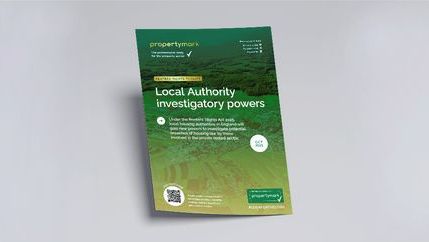
The legislation will implement many of the measures that the UK Government included in its ‘A Fairer Private Rented Sector’ White Paper that was published in June 2022.
The objective of the Bill is to ensure renters have access to a secure and decent home and that landlords retain the confidence to repossess their properties where they need to. The Bill will:
- Abolish Section 21 ‘no fault’ evictions and reform tenancy agreements where all assured tenancies are periodic
- Introduce more possession grounds where tenants are at fault, for example in cases of anti-social behaviour and repeat rent arrears
- Provide stronger protections against retaliatory evictions
- Introduce a new Ombudsman that all private landlords must join
- Introduce a new Property Portal including a database of residential landlords and privately rented properties in England
- Give tenants the right to request a pet in their property, which the landlord must consider and cannot unreasonably refuse
Further measures the UK Government will legislate for include:
- Apply the Decent Homes Standard to the private rented sector
- Make it illegal for landlords and agents to have blanket bans on renting to tenants in receipt of benefits or with children
- Strengthen local council’s enforcement powers and introduce a new requirement for councils to report on enforcement activity
Next steps for the Bill
Now that the Bill has been introduced to Parliament and published in full, this is known as ‘First Reading’. It is also the first stage of a Bill's passage through Parliament. The next step is the Second Reading, which is the first opportunity for MPs to debate the general principles and themes of the Bill. This is expected to take place the week commencing 5 June 2023, and Propertymark will be issuing a briefing to all parliamentarians.
The measures contained in the Bill will need to overcome normal legislative hurdles, and the changes will be introduced in stages as the provisions are passed into law. The Bill will be debated in Parliament and then approved by the House of Commons and the House of Lords and once it has received Royal Assent, it becomes law and is known as an Act.
Reassuring landlords and investors
This publication of the Bill has generated significant media coverage and it is important that letting agents communicate with their landlords and tenants that nothing has changed at this stage. Propertymark member agents can provide confidence to their landlords that they will be updated by their professional body with factual timely information.
Propertymark lobbying
As the Bill progresses, it will be subject to amendments, during which time Propertymark will be lobbying to represent the interests of our member agents and their clients and support them to understand the changes to ensure they are implemented successfully.





